Nach der Katastrophe
Das Museum für Photographie in Braunschweig zeigt zum 100. Geburtstag von Tony Vaccaro einen Ausschnitt seines fotografischen Werks
Text: Brosowsky, Bettina Maria, Braunschweig
-
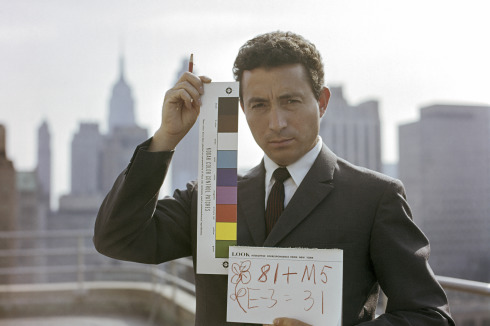
Tony Vaccaro, Tony Vaccaro Holding a Test Strip, New York, 1960
© Tony Vaccaro Studio, Courtesy of Monroe Gallery of Photography and the Tony Vaccaro Studio
Tony Vaccaro, Tony Vaccaro Holding a Test Strip, New York, 1960
© Tony Vaccaro Studio, Courtesy of Monroe Gallery of Photography and the Tony Vaccaro Studio
-
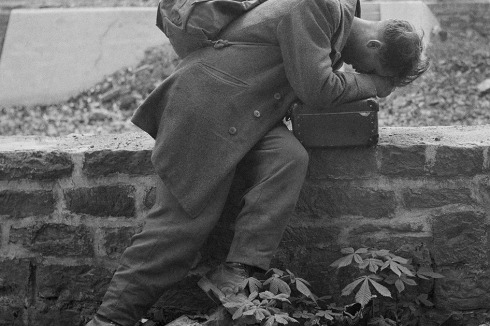
Tony Vaccaro, Defeated Soldier, Frankfurt Germany, 1945
© Tony Vaccaro Studio, Courtesy of Monroe Gallery of Photography and the Tony Vaccaro Studio
Tony Vaccaro, Defeated Soldier, Frankfurt Germany, 1945
© Tony Vaccaro Studio, Courtesy of Monroe Gallery of Photography and the Tony Vaccaro Studio
-
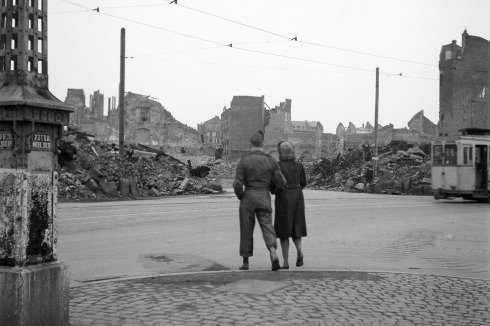
Tony Vaccaro, Entering Germany, Frankfurt Germany, 1947
© Tony Vaccaro Studio, Courtesy of Monroe Gallery of Photography and the Tony Vaccaro Studio
Tony Vaccaro, Entering Germany, Frankfurt Germany, 1947
© Tony Vaccaro Studio, Courtesy of Monroe Gallery of Photography and the Tony Vaccaro Studio
-
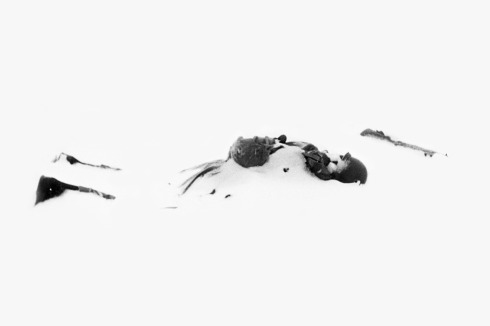
White Death, Pvt, Henry I. Tannenbaum, Belgium, 1945
© Tony Vaccaro Studio, Courtesy of Monroe Gallery of Photography and the Tony Vaccaro Studio
White Death, Pvt, Henry I. Tannenbaum, Belgium, 1945
© Tony Vaccaro Studio, Courtesy of Monroe Gallery of Photography and the Tony Vaccaro Studio
-
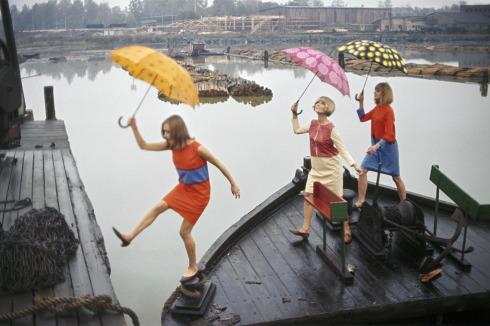
Tony Vaccaro, Fun in Finland, Marimekko, Helsinki Finland, 1965
© Tony Vaccaro Studio, Courtesy of Monroe Gallery of Photography and the Tony Vaccaro Studio
Tony Vaccaro, Fun in Finland, Marimekko, Helsinki Finland, 1965
© Tony Vaccaro Studio, Courtesy of Monroe Gallery of Photography and the Tony Vaccaro Studio
-
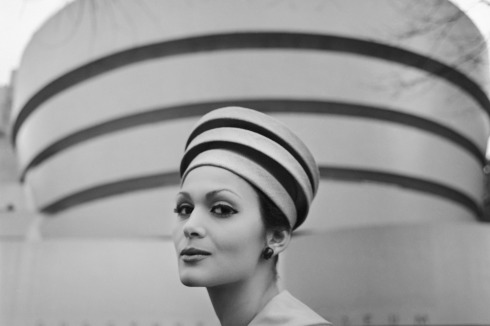
Tony Vaccaro, The Guggenheim Hat, New York, 1960
© Tony Vaccaro Studio, Courtesy of Monroe Gallery of Photography and the Tony Vaccaro Studio
Tony Vaccaro, The Guggenheim Hat, New York, 1960
© Tony Vaccaro Studio, Courtesy of Monroe Gallery of Photography and the Tony Vaccaro Studio
-
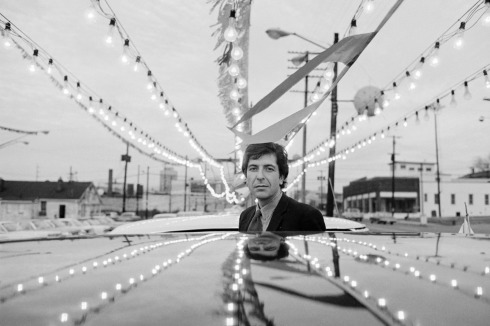
Tony Vaccaro, Leonhard Cohen, Nashville TN, 1968
© Tony Vaccaro Studio, Courtesy of Monroe Gallery of Photography and the Tony Vaccaro Studio
Tony Vaccaro, Leonhard Cohen, Nashville TN, 1968
© Tony Vaccaro Studio, Courtesy of Monroe Gallery of Photography and the Tony Vaccaro Studio
-
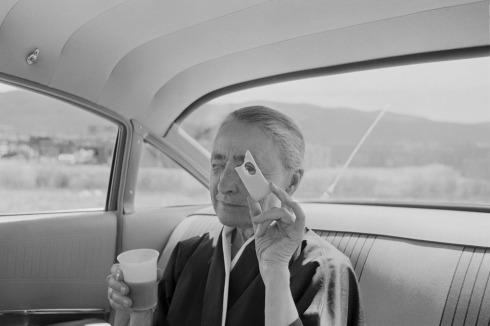
Tony Vaccaro, Georgia O‘Keeffe with Cheese, New Mexico, 1960
© Tony Vaccaro Studio, Courtesy of Monroe Gallery of Photography and the Tony Vaccaro Studio
Tony Vaccaro, Georgia O‘Keeffe with Cheese, New Mexico, 1960
© Tony Vaccaro Studio, Courtesy of Monroe Gallery of Photography and the Tony Vaccaro Studio
-
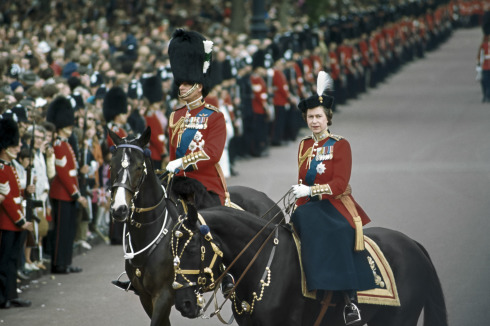
Tony Vaccaro, The Queen Elisabeth on her Birthday ceremony
© Tony Vaccaro Studio, Courtesy of Monroe Gallery of Photography and the Tony Vaccaro Studio
Tony Vaccaro, The Queen Elisabeth on her Birthday ceremony
© Tony Vaccaro Studio, Courtesy of Monroe Gallery of Photography and the Tony Vaccaro Studio
Nach der Katastrophe
Das Museum für Photographie in Braunschweig zeigt zum 100. Geburtstag von Tony Vaccaro einen Ausschnitt seines fotografischen Werks
Text: Brosowsky, Bettina Maria, Braunschweig
100 Jahre – das ist ein stattliches Alter! Am 20. Dezember dieses Jahres wird Tony Vaccaro, der amerikanische Fotograf mit italienischen Wurzeln, diesen Meilenstein erreichen. Das Museum für Photographie in Braunschweig zeigt zu diesem Anlass einen Ausschnitt aus seinem Werk, das seinen Anfang im Zweiten Weltkrieg nahm. Ab Ende 1944 fotografierte Vaccaro im Rahmen seines Wehrdienstes die Befreiung Westeuropas. Er blieb bis 1949 in Frankfurt und dokumentierte, nun als beauftragter Fotograf der Militärzeitschrift „Stars and Stripes“, das Wiedererwachen kulturellen Lebens in den Ruinen Europas. Zurück in den USA wurde er zum Chronisten einer sich rasant wandelnden Welt, arbeitete für große Magazine wie LIFE oder Newsweek. Europa blieb er stets verbunden, verbrachte ab den 1950er Jahren seine Sommer sowie einige vollständige Jahre in Rom und war lange mit einer Finnin verheiratet.
Ohne einen direkten Verwertungsauftrag entstanden konnten Vaccaros Aufnahmen aus dem Krieg eine andere Sprache entfalten als die des Fotojournalismus. Sie prägt eine Ruhe und künstlerische Konzentration auf die Situation und ihre Protagonisten. Zwar findet sich mit dem Foto „White Death“, dem schneebedeckten Leichnam eines in Belgien gefallenen Soldaten aus dem Januar 1945 ein ikonisches und immer wieder im Kontext von dokumentarischer Kriegsfotografie verortetes Bild in seinem Werkfundus, es ist aber, abstrahiert zu einer topografischen Verwerfung, so diskret angelegt, dass es die anonyme Würde des Toten wahrt. Diese Sensibilität prägt das gesamte Werk des Jubilars.
















0 Kommentare